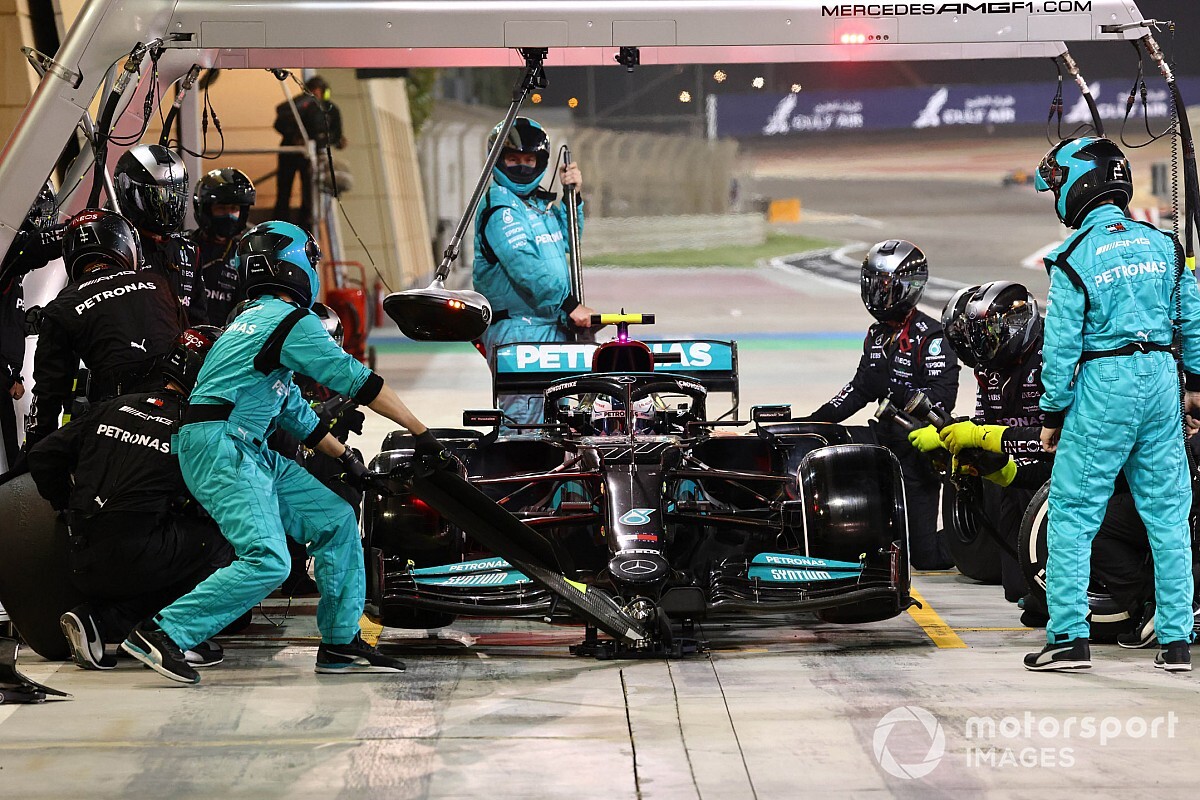F1 is bracing itself for a rules revolution in 2022, with the sport switching to all-new ground effect cars that it hopes will improve the racing.
The extent of the changes for next season means teams cannot afford to fall behind in early development.
That is because the biggest performance steps will be found during the initial work on the 2022 designs – and catching up with rivals if you start late will be very hard.
However, there is a juggling act to be played as teams also need to balance out the need to not totally sacrifice the current campaign if they are battling for good positions.

The cars of Lewis Hamilton, Mercedes W12, 1st position, and Valtteri Bottas, Mercedes W12, 3rd position, in Parc Ferme
Photo by: Steven Tee / Motorsport Images
World champion Mercedes faces a particularly difficult situation because it looks to be locked in a tight fight with Red Bull for this year’s championship, so knows that any early move to shut down work on its current car could cost it a shot at the title.
Mercedes team boss Toto Wolff has admitted that there is no obvious answer about when is best to focus everything on 2022, but he thinks all teams will face similar trouble.
“It’s going to be the same for all teams to balance resource that is going into the 2021 car and power unit, and the 2022 one,” Wolff told Autosport.
“It’s clear that you can’t afford to not perform in ‘21. But equally, the ‘22 regulations are going to be in place for quite some years. Once you start with a deficit, it’s very difficult to catch up. So it will take a while for performance to converge.
“In that respect, these are tricky decisions that we are evaluating regularly.”
Although Mercedes won the F1 season opener in Bahrain, the team concedes that rival Red Bull appears to have the fastest car right now.
Wolff says that the feeling his team has at the moment is not the same as recent years, where it has always been confident in having a strong package.
“It does feel different,” he said. “The regulation changes that were introduced last year, we just probably had more deficit to compensate. So when we put the cars on the road, that was pretty clear. But it is what it is, and now we have just got to do the job to the best of our abilities.”
shares
comments
